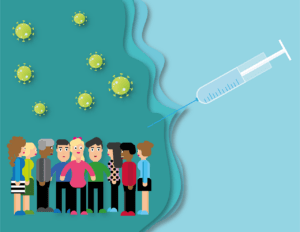Opinion
Danish Capital in 2021: Denmark hailed, but for the wrong reasons
Neil Smith
This article is more than 4 years old.

Just about contained (photo: Pixabay)
The Danish government’s recent decision to abolish all COVID-19 restrictions was met with widespread interest – both domestically and internationally.
It was natural that one of the first countries to abolish restrictions got international coverage; what was bizarre was to see Denmark become a poster child for the libertarian right in the US, who emphasised the ‘small state’ nature of the decision.
Cautious trinity to thank
This is a profound misinterpretation of the situation. Denmark has not reached this situation due to a lack of belief in the state, but rather the opposite. Specifically, there are three conditions which have made it possible.
High vaccination rates: 75 percent of all people in Denmark (including children) are fully covered – one of the highest rates in the world, and significantly higher than the United States. This figure offers an element of confidence that far fewer people will fall seriously ill from COVID-19.
Extensive use of testing: Denmark has been a world-leader – particularly during the spring. It was routine for people to be tested (even if they were not symptomatic), with 10 percent of the population being tested on a daily basis. This allowed the control of the spread of the pandemic to be constantly monitored.
Use of vaccine passports: widely in Denmark over the last six months, they have allowed the pandemic to be controlled. This is in stark contrast to countries like the US and UK, where a passport regime has been viewed as unfair and a bridge too far.
Not over yet
Without any one of those three factors, the pandemic would have taken a different course, and restrictions may not have been abolished.
The decision should be seen not on a libertarian basis but the opposite: a controlled and responsible use of state power, which put restrictions on certain liberties in the short term, with the goal of achieving wider opportunities for society in the long run.
None of this means COVID is over. The efficacy of vaccines is reduced against the Delta variant, and the more widespread use of booster shots will need to be considered in the coming months.
At the same time, the natural spread of the virus can be expected as the weather closes in. All this may require some moderate restrictions to be imposed again.
What we can clearly see now, though, is a way forward, along with a collective understanding that short-term sacrifices can lead to longer-term improvements.

About
Neil Smith
Neil is a Scottish-educated lawyer with 18 years’ experience in corporate structuring and general commercial matters. Based in Copenhagen, he primarily advises on international deals. Out of the office, his interests include sports and politics. His column explores topical international financial and economic issues from a Danish perspective.










































